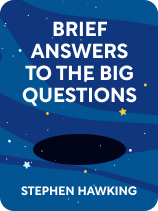

This article is an excerpt from the Shortform book guide to "Brief Answers to the Big Questions" by Stephen Hawking. Shortform has the world's best summaries and analyses of books you should be reading.
Like this article? Sign up for a free trial here .
What is science literacy? Why might the future of the human race depend on the next generation of scientists?
Science literacy is the understanding and knowledge of science. Before he passed, Stephen Hawking wrote that the survival of the human species will depend on future scientists because he believed the only way humans will avoid extinction is by colonizing space.
Here’s why science literacy is so important—and how politics get in the way.
We Must Inspire the Next Generation of Scientists
Stephen Hawking expects that humankind will face a number of challenges in the not-so-distant future and emphasizes that science literacy will be increasingly important to help people navigate these challenges.
Why will sciencee literacy be so important for our future wellbeing? Two issues that Hawking discusses in particular are the ongoing evolution of the human race and the expansion of human civilization into outer space. Both these issues present us with a variety of technical questions or challenges that have broad implications for society, and we will need a new generation of technical experts to develop solutions to these challenges. Furthermore, as society is faced with ethical and political decisions that increasingly have a technical element to them, even non-scientists will need an increased level of science literacy to understand the issues as they contribute to society’s decision-making process.
| Where Science and Politics Meet Many people have observed, often with concern, that science is becoming increasingly politicized. Some argue that this is detrimental both to science and to society, arguing that politicians should leave scientific inquiry to professional scientists, and then humbly incorporate scientists’ recommendations into political policy. Others, such as Yuval Noah Harari, argue that science is inevitably directed by socio-political interests, because scientific research is expensive, and scientists are dependent on society for their funding. For better or for worse, this gives society control over what scientists study. Hawking’s perspective suggests both a cause for the increasing intersection of science and politics and a solution to the problems that it can create. As society advances technologically and becomes more dependent on technology, social problems become increasingly technical. So, in a sense, it’s not that science is becoming more politicized—it’s just that social issues are more technical than they used to be. And so, to cope with society’s problems, we all need to be more technically literate. For example, energy production and environmental sustainability are issues facing our society today. Some politicians want to subsidize the production of solar panels because they believe solar panels provide an environmentally sustainable way of generating electrical power. Others oppose widespread production of solar panels because they believe that solar panel waste does more damage to the environment than the panels can prevent. After all, solar panels have to be replaced periodically as they wear out, and it takes a lot of solar panels to produce as much power as a single traditional power plant. Who’s right? This is a social question that requires a numerical solution: If the lifetime energy production of a typical solar panel is high enough, it’s worthwhile for society to invest in producing more of them. If not, stimulating production would be counterproductive. You may not have the time or the funding to measure the output of solar panels for yourself, but the more scientifically literate you are, the easier it will be for you to assess the technical validity of the data that each side provides in this debate. |

———End of Preview———
Like what you just read? Read the rest of the world's best book summary and analysis of Stephen Hawking's "Brief Answers to the Big Questions" at Shortform .
Here's what you'll find in our full Brief Answers to the Big Questions summary :
- The final lessons from Stephen Hawking, published after he passed
- Hawking's thoughts about God and religion
- Why humans should be colonizing the Moon






